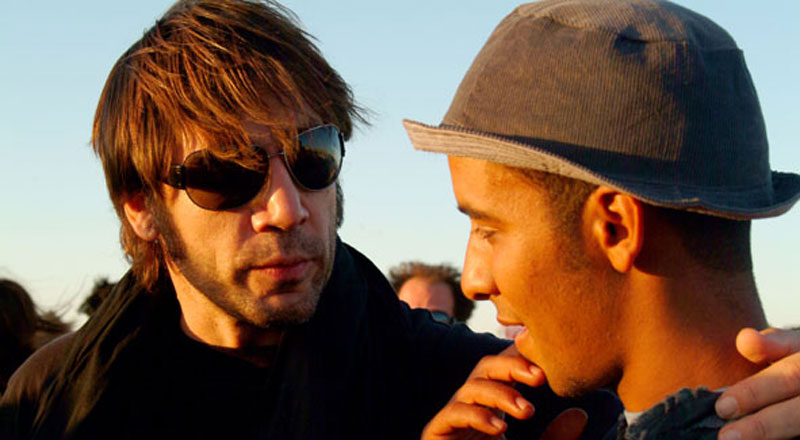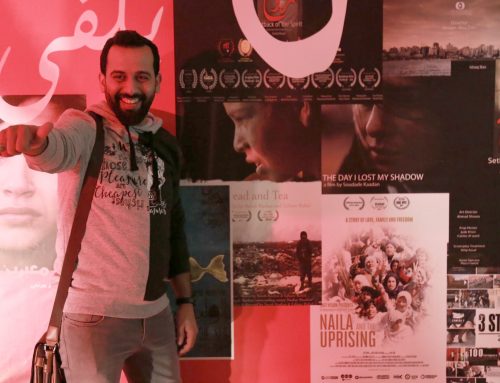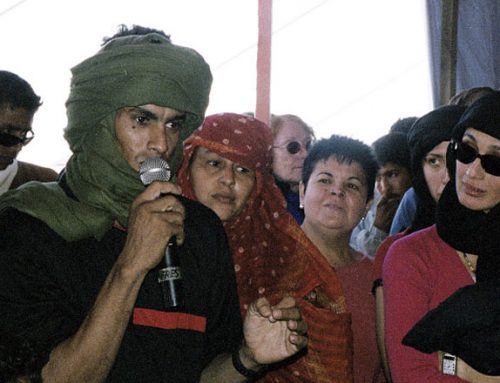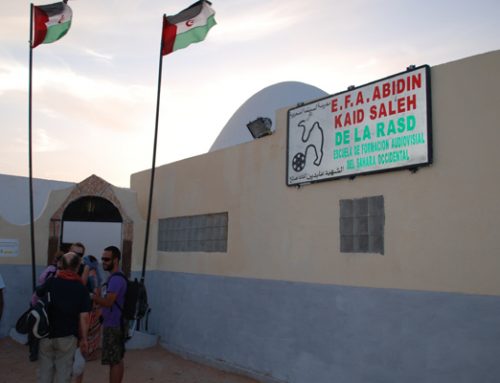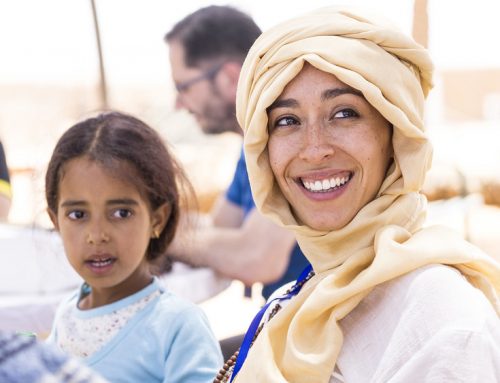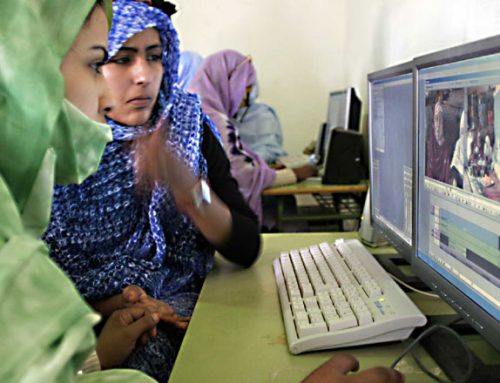The Bardems, a renowned family of filmmakers and actors from Spain, have always had a soft spot for Western Sahara, its people and their cause. The matriarch of the family, actress Pilar Bardem, has been marching for the Sahrawi right to self-determination ever since Morocco invaded Western Sahara in 1975, back when her children, including well-known actor Javier, were still kids.
In 2008, Javier Bardem finally traveled to the refugee camps to participate in FiSahara’s 5th edition and learn more about the conflict and conditions in the camps. He lived in an adobe home with a Sahrawi family in the refugee camp of Dajla — a stark departure from the five-star hotels that usually host artists of his stature — and made steadfast friends there. Although he had become an international film star by then, he did not want to be the center of attention and told journalists covering the festival that “Sahrawis are the real protagonists here, not me. I came because I want to acquire a deeper understanding of the reality of this people who have been exiled, and I hope to have a clearer idea after a few days of living amongst them”.
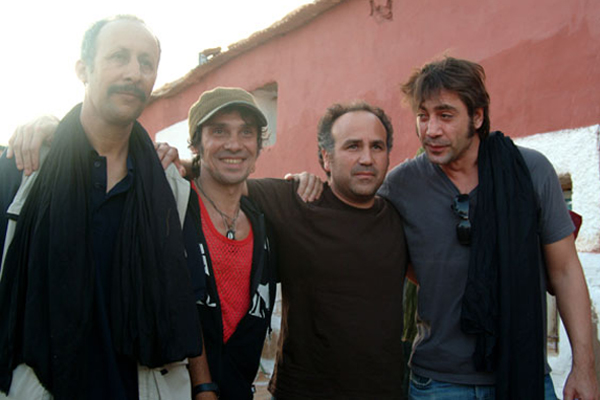
The Saharawi known as El Rubio, the singer Manu Chao, the co-director of FiSahara Javier Corcuera and Javier Bardem in 2008. (Juan Carlos Rincón)
Bardem not only achieved this objective: he has since become one of the most visible and vocal defenders of the Sahrawi people’s right to freedom and self-determination, making a documentary on the conflict, heading a campaign and even testifying before the United Nations.
“I returned shocked by Morocco’s abuse of the Sahrawi people’s rights. I only spent 10 days there. Since then, I have been trying to get involved with this issue,” he wrote in an opinion piece published by CNN.
Bardem has repeatedly called on Spain, as the former colonial power, to spearhead an effort to broker a peaceful and just solution to the conflict that honours the Sahrawis’ right to a referendum on self-determination, promised to them in 1991 after the cease-fire.
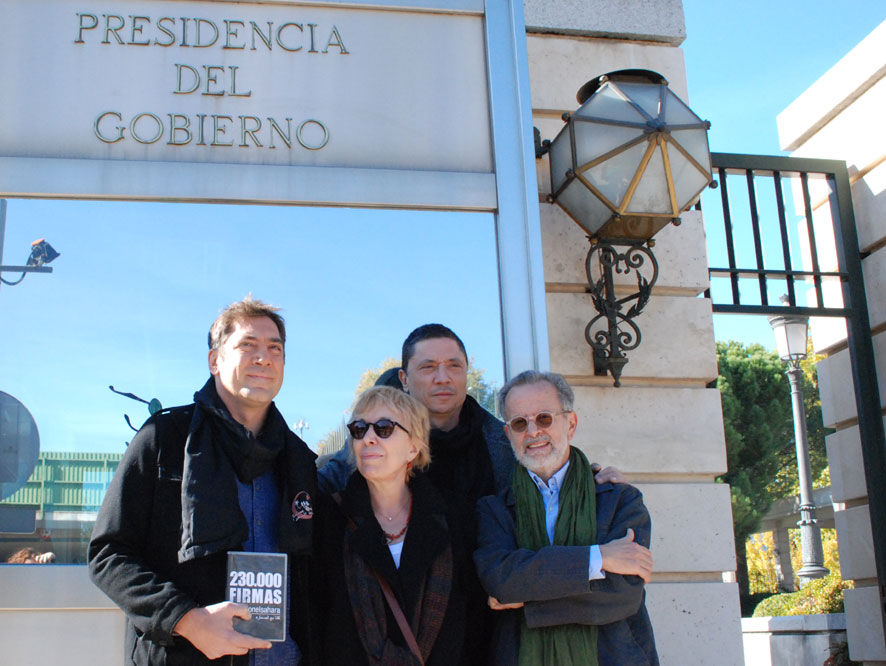
The Bardem brothers, together with other Spanish actors, hand over the signatures to the President of the Government of Spain. (D.Bollero)
Soon after his visit to FiSahara Bardem launched a campaign called “Everyone with the Sahara” seeking to press the Spanish government to recognize the diplomatic status of the Polisario Front, which represents the Sahrawi people in UN-sponsored peace negotiations and has diplomatic posts all over the world. In 2010 Bardem, his brother Carlos, an actor and filmmaker who has also visited FiSahara, and a group of Spanish filmmakers and actors tried to personally deliver 230 thousand signatures asking for Polisario’s recognition to Spain’s then-president, Socialist José Luis Rodríguez Zapatero, who declined to meet with them.
Bardem’s profound experience in the camps and his time spent campaigning inspired the production of Sons of the Clouds: Africa’s Last Colony, a documentary directed by Álvaro Longoria in which Bardem, as its main protagonist, embarks on a quest to understand why the conflict in Western Sahara has been so long ignored by world’s leading powers.
Featuring over 70 interviews with experts, politicians and analysts, as well as Sahrawi diplomats and ordinary people, the film takes viewers into the corridors of power and unearths a complex web of economic and geopolitical interests and neo-colonial alliances that collude to keep the conflict in Western Sahara in a state of perpetual freeze.
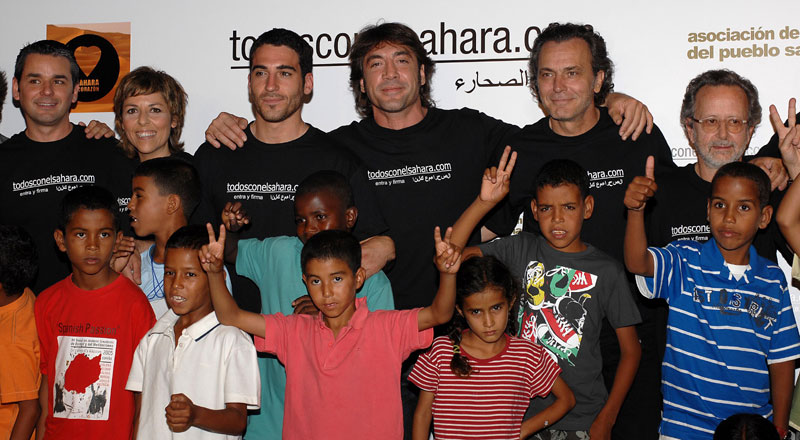
Campaign “Everyone with the Sahara”.
Bardem has tried to address the schism between public sentiment in Spain, which strongly favours a just solution to the conflict, and the policies of Spain’s various governments, no matter which political party is in power. “The population is really aware of it and supportive of the Sahrawi people”, he told The Independent. “But no government has done much about it, because it is a hot potato… they will be forced to face Morocco in so many ways and they can’t, or they don’t want to.”
“We want people to draw their own conclusions”, Bardem said after the film’s release in 2012. That year, Sons of the Clouds premiered at FiSahara and won the festival’s White Camel Award for Best Picture.
That screening may have been the film’s most memorable. As Bardem appeared onscreen speaking before the United Nations’ General Assembly, the audience, sitting under the starts, erupted in cheers. . “Enough is enough, no more delays, the time has come for a just solution. The people of Western Sahara must be allowed to speak,” he said.
Javier Bardem’s steadfast commitment to the Sahrawi cause, seeded by his mother Pilar’s activism and cemented when he visited FiSahara, remains to this day. “Our worst enemy are not bombs, landmines or prison cells: it is silence”, Sahrawis say. Thanks to the Bardem family, this silence is no more.

